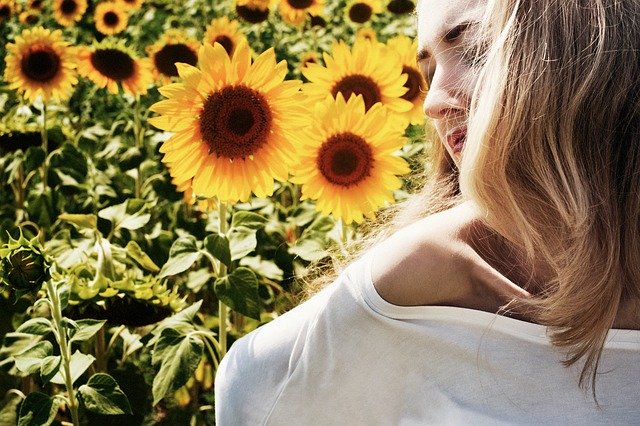Litha or Midsummer is the celebration of the summer solstice that occurs on the 21st June (Northern Hemisphere). As such, it is the celebration of the fullness of nature and the strength and power of the sun. At this point in the year, we have reached the point of maximum light and climax of the Wheel of the Year.
Although the decay of winter and Samhain are a long way off, Litha marks the last day before we start the gradual descent into darker and colder days as daylight begins to shrink again.
The History of Litha & The Summer Solstice
Litha has long been celebrated throughout the British Isles and Europe.
In ancient Rome, this celebration was known as Vestalia which was the celebration of Vesta, the goddess of virginity, chastity and the sacred flame. Women would visit the temple of Vesta and make offerings to this goddess. Together, with the Vestal Virgins, priestesses of the goddess who vowed 30 years of chastity, they would celebrate the peak of summer.
In Britain, the celebration of the summer solstice was quite different. As Stonehenge proves, the worship of this time of year extends far into Britain’s ancient history. This ancient megalithic structure is aligned to the sun and on midsummer’s day, the sun rises to the North-East just left to the Heel Stone. As such, the sun shines in and illuminates the of the whole centre of Stonehenge.
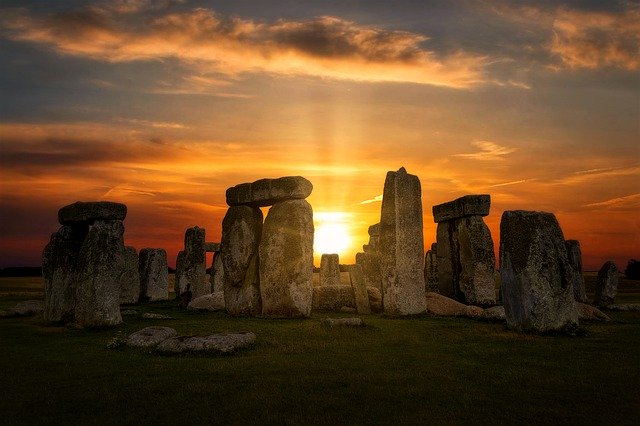
In the 4th century in Aquitaine, South-Western France, this time of year was celebrated by burning a wheel of straw and pushing it down the hill. This custom continued for hundred of years and it was said that if the wheel of straw was still alight when it reached the bottom of the hill, then a bountiful harvest was promised.
However, proper detailed records of the celebration of Midsummer only go back as far of the 13th century. During this time celebrations would include the singing of songs and outdoor games. It was also recorded that people would hold outdoor feasts with their neighbours where sweetbreads, meats and baked goods would be feasted on. It was a time of merriment and enjoyment of the warmer weather.
It was also a time of love-making. As the weather was at its warmest, young couples would go into the woods to make love. There was a misconception that this took place at the earlier festival Beltane (held on 1st May) but records show there tended to be a spike in births exactly nine months after the time of midsummer, rather than Beltane.
The Spiritual Meaning of the Summer Solstice & Litha
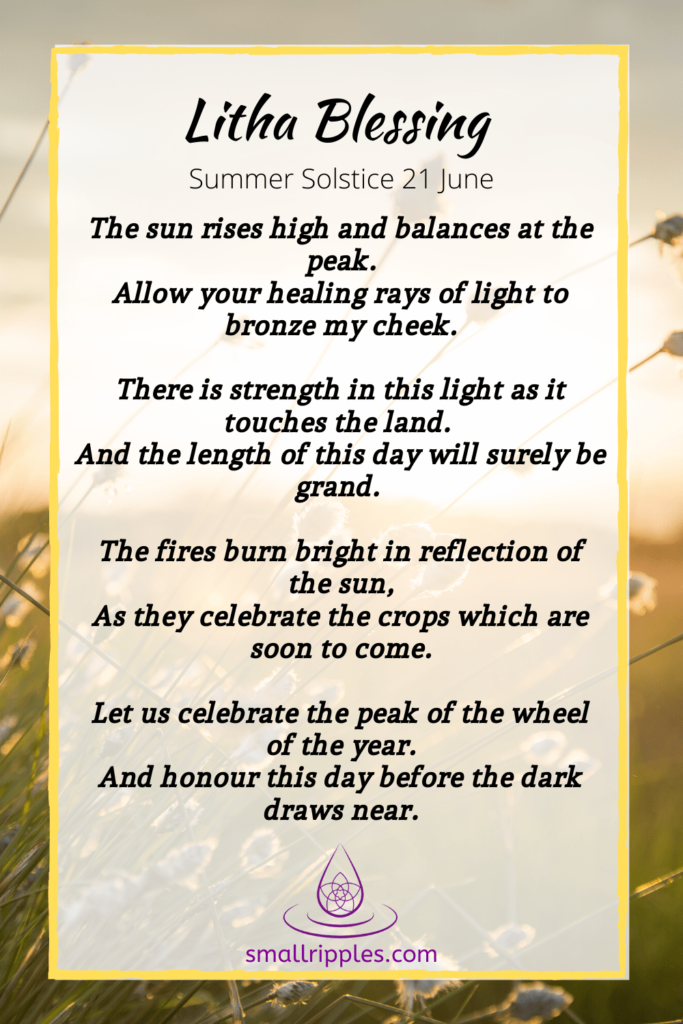
Litha is all about celebrating the warmth and life the sun gives. There is a very good reason why many ancient cultures worshipped sun gods and goddesses and this is because the sun is our giver of life and light. Without it, life would never have prevailed on this planet.
At this point in the year, the crops are growing, the fruit is ripening and flowers are in full bloom. Nature is singing with delight.
On another level, this is the time of year that projects are brought to fruition and possibly a new love interest can show up in your life. I always find at this time senses and sensations are heightened as nature’s life force is at its strongest.
Themes of Litha & Summer Solstice
To understand the spiritual aspect of Litha. Here are a few themes I noted down:
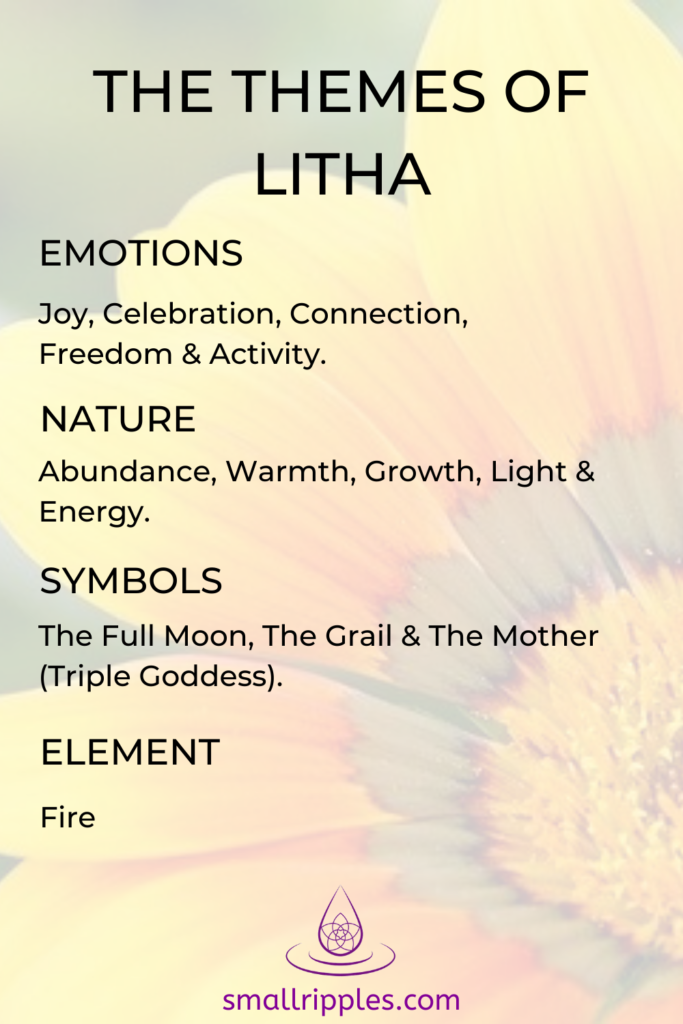
Summer Solstice Celebration Ideas
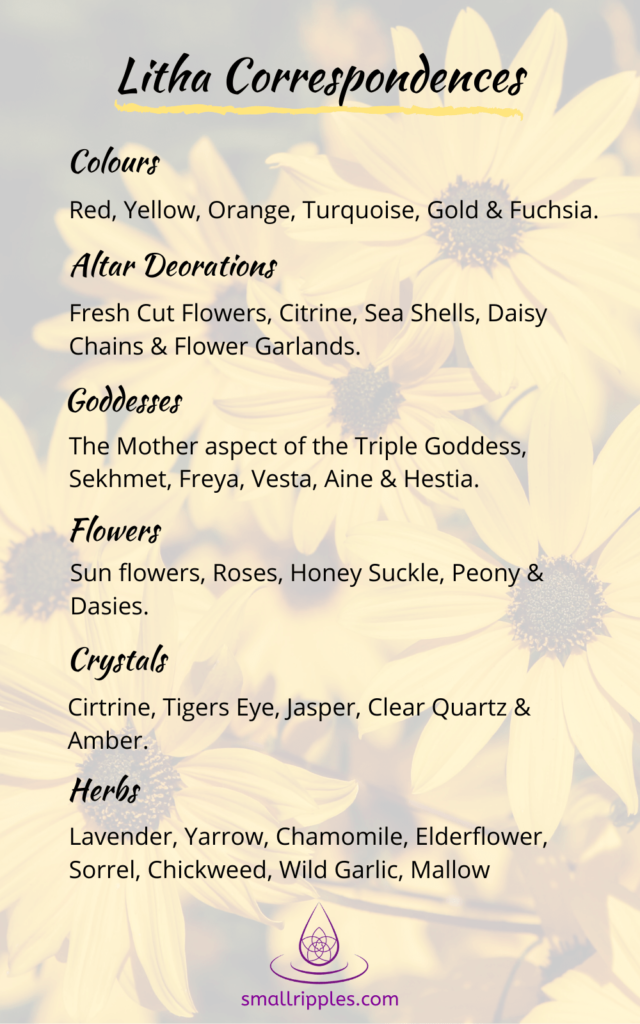
With the glowing sun blazing down on us, the best way you can celebrate this day is outdoors!
And if you are stuck for ideas on how to celebrate the summer solstice and Litha, here are few suggestions:
- Visit a sacred site.
- Have a picnic with friends and family.
- Create a Litha altar – decorate your altar with Citrine (the crystal that represents the sun) and flowers that are blooming at this time such as roses, sunflowers and peonies.
- Create a bonfire – safely of course!
- Connect with nature – this could be a quiet walk in nature or maybe a foraging expedition. Find out the best herbs, plants and flowers to forage in June.
- Do a ritual or Litha blessing – this could be as simple as lighting a candle and thinking about what creative projects you would like to bring to fruition or maybe blessing your own home-grown crops to ensure a plentiful harvest for you and your family.
- Love is in the air! This is a great time to go on a date or connect with someone you are interested in.
- Honey is the food for this sabbat/holiday. Try making some honey and lavender cookies or honey cakes.
How ever you choose to celebrate this holiday, do it with the intention of honouring the sun and the abundance of nature. The sun is our giver of life and ‘our father’ in nature (with Earth being our Mother). Enjoy the warm weather and spend your time in the company of good friends and loved ones. This is a time to celebrate and be joyful!
Have you followed me on Instagram yet? Follow me for videos, affirmations and inspiration from me ?.
(8)

